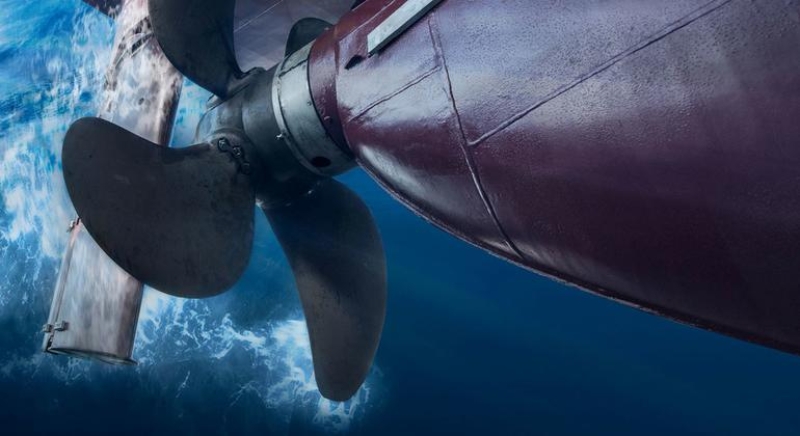- Puppet show enchants Children as Boi Mela comes alive on day 2 |
- DSCC Admin Salam’s drive to make South Dhaka a ‘clean city’ |
- 274 Taliban Dead, 55 Pakistan Troops Killed |
- Now 'open war' with Afghanistan after latest strikes |
- Dhaka's air quality fourth worst in world on Friday morning |
Can the Shipping Industry Turn Down the Ocean’s Noise?

The International Maritime Organization (IMO) is campaigning to curb underwater noise from ships.
The ocean has never been silent – waves crashing, seabirds calling, whales singing across vast distances. But in recent decades, a new kind of noise has taken over: the relentless hum of ships. For many marine species, this growing wall of sound is more than a nuisance – it’s a threat to their survival.
As global trade surges, so does the underwater noise generated by commercial shipping. From the Arctic to the Great Barrier Reef, scientists have documented how this constant mechanical hum can disorient whales, disrupt migration routes, and drown out the acoustic cues that many marine species rely on to survive.
As the issue intensifies, the United Nations agency responsible for regulating international shipping is now focused on reducing underwater noise.
Arsenio Dominguez, Secretary-General of the UN International Maritime Organization (IMO), has recognized underwater-radiated noise as a critical and emerging concern. “We know the negative impact that shipping has at the bottom of the ocean, even though we're also the main users,” he told UN News during the third UN Ocean Conference (UNOC3) in Nice. “That's why we're taking this very seriously.”
New Guidelines
More than 80 percent of global goods are transported by sea. Propellers, hull vibrations, and engines generate low-frequency sounds that travel vast distances underwater. Unlike oil spills or visible trash, noise pollution leaves no trace – but its impact is no less severe.
To address the issue, the IMO has issued updated guidelines for reducing ship noise and launched a comprehensive Underwater Radiated Noise (URN) Action Plan.
A three-year “experience-building phase,” during which countries are invited to share lessons and help develop best practices under the new guidelines, is currently underway.
“We now have an action plan to develop mandatory mechanisms, learning from this,” said Mr. Dominguez.
These voluntary guidelines – first adopted in 2014 and updated in 2023 – offer a range of technical recommendations for shipbuilders and operators, including hull design, propeller optimization, and operational measures such as speed reduction.
According to the IMO, these changes can significantly reduce noise, especially in “Particularly Sensitive Sea Areas” like the Galápagos Islands in Ecuador and the Tubbataha Reefs in the Philippines, where marine ecosystems and Indigenous communities are especially vulnerable.
New Technologies and Pilot Initiatives
The issue of shipborne noise pollution is also gaining traction at UNOC3, as part of its broader discussions on ocean health, marine biodiversity, and regulating industrial impacts on the sea. The UN maritime agency is using the gathering to promote its updated guidelines.
Mr. Dominguez emphasized the importance of new technologies in reducing underwater noise: “By enhancing biofouling management and cleaning vessel hulls, and by introducing new propeller technologies, we can begin reducing the negative effects of underwater radiated noise.”
He added, “Another effective measure is speed optimization. By reducing ship speeds, we also reduce underwater noise.”
Together with the UN Development Programme (UNDP) and the Global Environment Facility (GEF), the IMO has launched an initiative called the GloNoise Partnership. It aims to reduce the acoustic footprint of shipping in pilot countries including Argentina, Chile, Costa Rica, India, South Africa, and Trinidad and Tobago.
“We Are on Board”
“We need to do everything within our power to protect the ocean,” said Mr. Dominguez. “It’s not just about the food on our plates – it’s the goods transported by sea. Without them, civilization couldn’t function.”
The stakes, he warned, extend beyond biodiversity.
“This will have a positive impact on marine conservation… Once we gather all this information, we’ll enhance shipping quality in terms of efficiency and reduced underwater noise.”
As scientists continue to sound the alarm, Mr. Dominguez stressed the need for action: “The big message from everyone at UNOC3 is: let’s focus on tangible results. We’ve made statements in the past. We’ve made commitments. Now it’s time to act and evaluate what’s been done – and what still needs doing.”
“We are not against this,” he concluded. “We are on board.”

